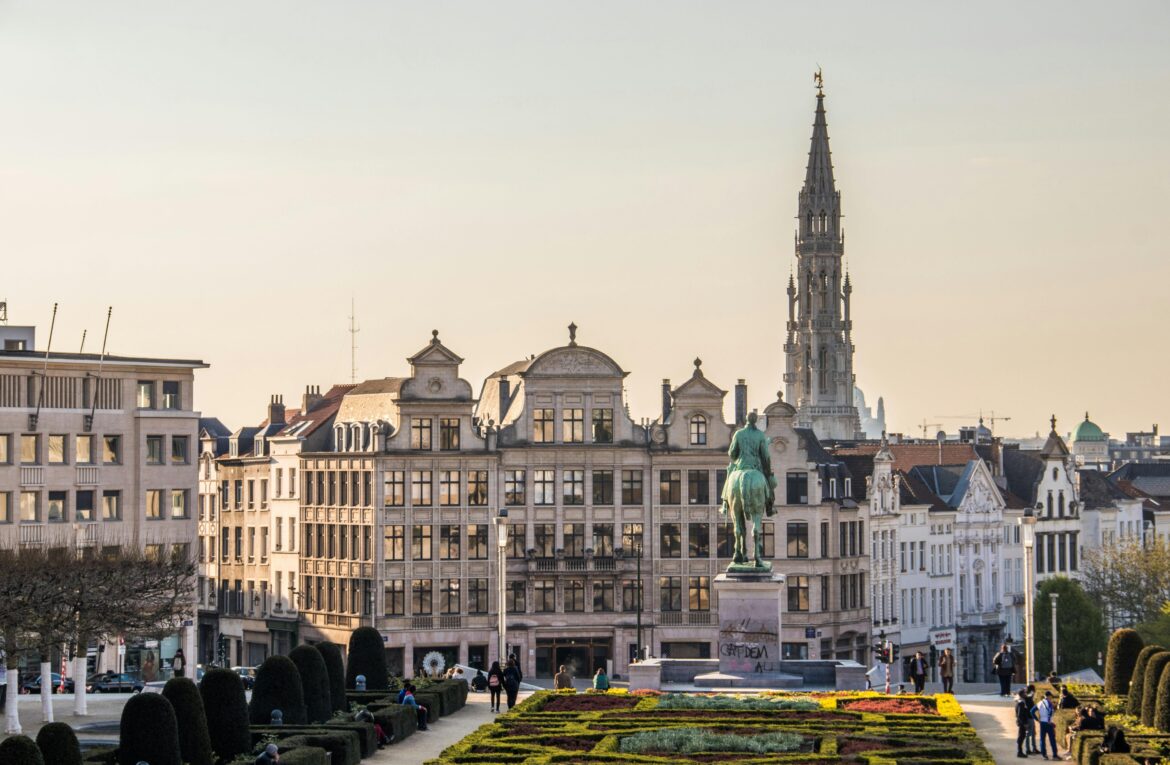Listen or read the SFL Liberty Report by Gonçalo Torres which delves into the libertarian perspective on the issue of the Belgium Parliamentary election with Maastricht SFL local coordinator Timothy Lacey.
Gonçalo Torres: Thank you, Timothy, for agreeing to participate. Who are the main parties and main topics of the campaign of the Belgian election?
Timothy Lacey: The main topics of the campaign were kind of all over the place and it depends of course on the part of Belgium concerned. So far the biggest topic in Western Europe in general has been immigration. And we have had a huge rise in migration in Belgium. In Wallonia, the campaign was centered around removing the Socialist Party from power because they’ve brought our economy to a halt. And also trying to stop Flemish independence because they’ve had a huge surge in popularity in the past few years.
GT: Just just to give a little bit more context, in Wallonia, the right-wing party won in the coalition with the separatists. And in the federal election, it was a right-wing party that formed a big coalition. Those were the main losers and winners. Do you think there will be a stable government with a big coalition?
TL: Actually, yeah, because we used to have a kind of a socialist coalition. Well, not really socialist, but kind of a coalition between a bunch of parties that didn’t agree on anything. They just wanted to keep the far-right Flemish nationalists out. But now it seems that the federal government will be ruled by a generally right-wing set of parties from both regions as opposed to before.
GT: As we discussed, they are going to be joined by separatist movements. Are the separatists a real threat to Belgium and is there a possibility of separatism from Belgium?
TL: So the thing to know about Belgium is that there are two separatist parties. One is very much far right and the other one is more moderate. And the more moderate one has agreed to do things the constitutional and legal way. And so as long as they are in the coalition, there is probably no real threat of Flemish independence and whatnot because it would need the amendment of the constitution, therefore 2/3 of the vote.
However, Vlaamsblang, which is the far-right Flemish party has stated that they would try to attempt a Catalonian type of independence where the would just hold a referendum and if there’s a majority they would just secede without any kind of any kind of approval from the courts.y
GT: What is this future coalition view on the EU and are those separatists and the new government EU cynics or are they pro-EU?
TL: They’re soft Euroskeptic. They’re more like Maloney. They want a softer European Union rather than a stronger one. But in general, they’re rather favourable.
GT: Just so we can get a bit of a comparison, who are their main allies in Europe? Who are they compared to?
TL: It’s a bit difficult since that party is more focused on nationalism rather than European matters. They are grouped in ECR, but they’re planning on joining the EPP, which are the ones that are actually going to form a government.
GT: Can you tell us a little bit about what you expect to change?
TL: We’ve seen in Wallonia a socialist party governing our region for the past decades basically. Wallonia has already been struggling economically in the past because of deindustrialization. So instead of, you know, kind of economic shock therapy, the Socialist Party basically just gave all the newly unemployed workers, just a bunch of welfare benefits. So they’ve remained in power for a long time, but this has just like completely destroyed Wallonia’s productivity, employment rates, etc.
However, with the new right-wing government, they seem to be more interested in liberalizing our economy, reducing spending and just in general trying to promote innovation, which is good.
GT: And lastly, what do you think is the future of the liberty movements in Belgium?
TL: I don’t have a lot of hope for it because as it stands like in much of Western Europe, the current ideological divide is between the left-wing, ecologist, anti-capitalist, left-wing and a very protectionist and nationalistic right-wing. So I don’t have much hope because both sides view capitalism in a negative light.
GT: Thank you so much Timothy for agreeing to participate and for telling us in your country.
